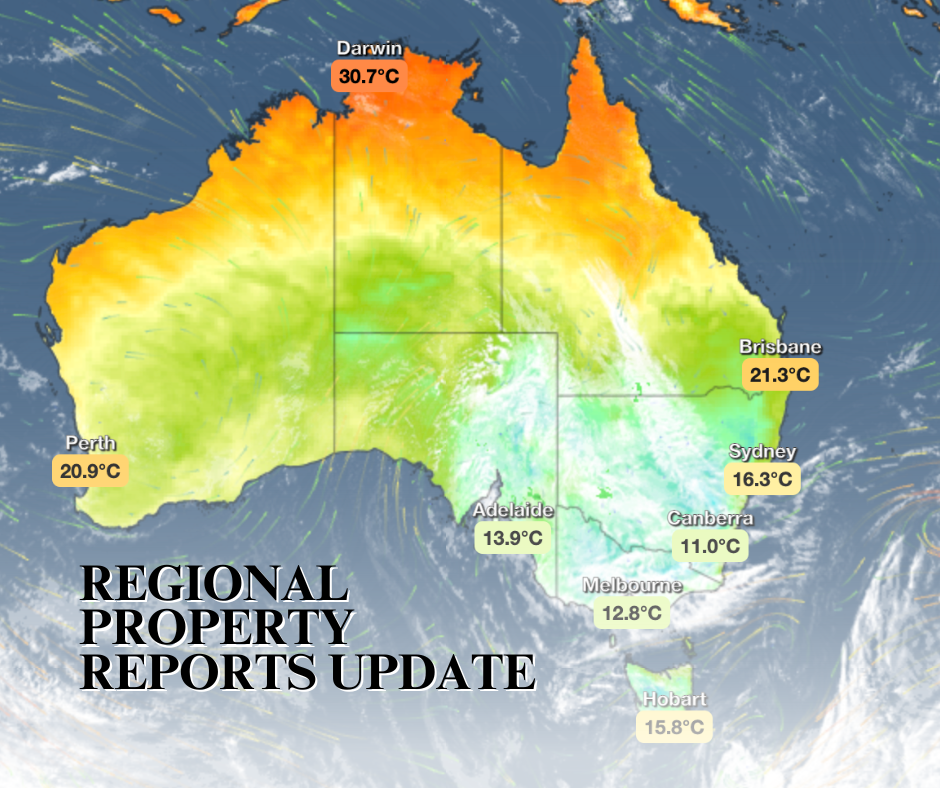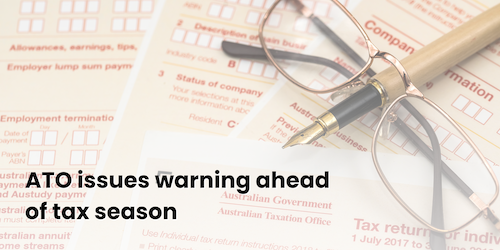There are lots of great articles below on property and finance, but first, FIVE things which might also make a difference in your life…..
#1 BIR Finance Wishkeeper offer
If you are receiving this newsletter, you will have the opportunity to get a free Wishkeeper account.
Wishkeeper is a digital storage facility like no other. It is a place where you can safely and securely store all your personal, legal and financial records as well as all your memories, thoughts and wishes. And with you managing who can access each document, you are always in control.
I am setting up Wishkeeper for all my clients; past, present and future. They will be able to obtain their own Wishkeeper account – free of charge; a saving of $495.
If you would like to receive this great offer, just contact me about how I can assist you obtain finance (or refinance) for your home, investment property, car, business cashflow or Self Managed Super Fund.
#2 Men only! Lunchless Lunch
That’s right – men are invited to a lunch with no lunch – what could possibly go wrong….
Ok, now I have your attention, this is for men who can make it to a lunchless lunch at the AFL Dining Room at the MCG on Friday 14 June (11.45 am to 2.30 pm – so plenty of time to snack before or after).
Now for the good part – the CAUSE.


Business Men Walking The Talk. Go Hungry So She Can Be Safe.
Us men all have mothers, wives, sisters, daughters and friends.
They are all women. And, they don’t always feel as safe as they should.
As a man, I don’t know what feeling ‘unsafe’ is just not on my radar. In my life, I have rarely felt unsafe.
Segue: our home last week:
14-year-old son: ‘Mum, can we go and watch the Hawks?’ Mum: ‘Let’s go to the 1.45 pm Adelaide match‘ Son: ‘Why can’t we go to the Richmond 4.35 pm match?’ Mum: ‘It will be dark when we have to come home’
For me and my 14 year old son, the time is not an issue. The dark is not an issue. There is no issue. Unless you are a woman.
So this lunch matters. If you are a male and you will be in Melbourne of Friday 14 June, now is a good time to get involved and show you are willing to learn – because keeping women feeling safe is the least we can do.
As Paige Lamoureux, CEO and Founder of the Women of Oz said:
Women Of Oz brings a vibrant and refreshing energy to this space. They are inclusive of the important role men play in ensuring the safety, respect, and well-being of women. They will not be talking ‘at us men’ but they will be helping us navigate and champion the cause.
Sponsorship Available
Let me know if your business or organisation would like to be an Event sponsor or get involved in some way, and I will arrange an introduction to Paige so you can take this further.

#3 I’ve done the lunchless lunch, so now I want (need) a wine tasting (please)
Together with Melissa Gauchi, the Founder and Owner of Gauchi & Co. Wine Tours, we are offering you 10% off your wine tasting – if you book before 31 July 2024 – and use the code BIRCLIENT.
There are two options
go to the wineries
or
let the wineries come to you!
I have attended a ‘winery to you’ event and it was well run by Melissa and her team. Plus, the wines were not ones I had tried before (and they were a nice drop as well!).
Wine regions covered: Yarra Valley, Mornington Peninsula and Geelong Bellarine.
Packages typically include: 3 wineries, 3 wine tastings, lunch packages plus chocolate and cheese tastings if desired.
Any size group bookings can be accommodated.
#4 Property Loans for Self Managed Super Funds
If you have a property financed within your SMSF, and you set this loan up a few years ago, chances are you are paying an interest rate which is anywhere from 9% to over 10%.
Today, there are plenty of lenders who will look at refinancing your SMSF property loan at rates starting as low as 6.99%.
#5 Sharemarket research to blow your mind
Introduced to the work of Bloombergs, Hendrik Bessembinder, and Gann by the good guys at Property Sharemarket Economics (you should really follow these guys up and mention my name to get a nice welcome from Phil Anderson, Akhil Patel and their team – their website is linked in the chart below), I found out some interesting sharemarket ‘trivia’ which might make you money or save you money – and at the very least, it will open your eyes to what you won’t be told in the media.
First, a graph from Bloombergs:

What this chart shows
Since 1925, Barclays data reveals the wide spectrum of real returns (i.e. after allowing for inflation) across various asset classes in the US. In shorter intervals, equities have shown the potential for significant losses, surpassing those of bonds. However, over longer periods, typically spanning 20 years or more, equities have consistently outperformed inflation, despite enduring events such as the 1929 stock market crash and the 2008 global financial crisis.
Phil’s only gripe is that this research doesn’t take into account property which, as he opined, would be a great addition.
Now in itself, you might yawn and say ‘Of course’.
But then, Phil connect the dots
First, a quote from Hendrik: “Investments in publicly-listed U.S. stocks enhanced shareholder wealth by more than $55.1 trillion in aggregate during the 1926 to 2022 period, even while investments in the majority (58.6%) of the 28,114 individual stocks led to reduced rather than increased shareholder wealth. The degree to which wealth enhancement is concentrated in relatively few stocks has increased over time…”
Then Phil: In other words, most stocks do very little over time. Indeed, 58% of the time, they lead to reduced value for investors. The gains, he found, are only in a very limited number of the listed stocks.
And Henrik’s research paper goes on to say: The degree to which wealth enhancement is concentrated in relatively few stocks has increased over time: for example, the number of high-performing firms that explain half of the net wealth creation since 1926 decreased from ninety as of 2016 to eight-three as of 2019 and to seventy-two as of 2022. I identify the firms with both the largest enhancements and largest reductions in shareholder wealth since 1926 and during more recent intervals.
Putting aside the obvious question ‘who are these high performing firms?’, the interesting thing is that their is a significant concentration of wealth creating stocks and a LOT of chaff who will eat your money.
And then the final part of the jigsaw puzzle
Again, from Phil: Which is where Gann comes in. Gann clearly showed there is a ‘time’ to buy stocks and there is a time NOT to buy stocks. This can stack the odds of improving your stock returns quite dramatically.
In other words, making sure you avoid those 58.6% of shares that destroy shareholder wealth.
This sounds a lot like property – so this is a good segue into the Property Clock Update below and the benefit of using a quality property advisor to help you select the right property (we can help you here as well).
And now for the articles!
With the federal Budget just behind us and the end of the financial year only weeks away, lots is going on. Here are some stories that caught my eye:
- Property Clock Updates
- Budget delivers tax cuts
- ATO’s 3 key focus areas
- Mortgage activity up 11.4%
- Fixed loans at low ebb
Read more below.
Property Clock Update
Quarterly update

Do not miss these incredibly useful reports covering over 30 regions across Australia, including all the capital and main regional cities.
Important advice
Your greatest potential loss
might be the cost of selecting a sub-optimal property
Selecting a sub-optimal property can prove costly. For example, a 2% difference in the annual growth rates between two properties (in this example, 5% and 7%) for a $500,000 property would result in a capital gain reduction (curious use of grammar but you hopefully get my drift) of $63,000 over five years and $179,000 over ten years.
Our recommended course of action
Consult with a reputable property advisor. We are connected with advisors who provide bespoke, well-researched investment strategies tailored to meet your specific needs.
Recent Property Reports updates


Treasurer Jim Chalmers unveiled a series of measures in this year’s federal Budget to address what he said was the government’s “number one priority” – cost-of-living relief.
The centrepiece was the Stage 3 tax cuts. This included a tax cut for all taxpayers, with an average cut of $1,888 a year or $36 a week, starting from 1 July 2024.
Investment opportunity alert
My go to guy on Exchange Traded Funds (ETFs), Andrew Bonnici, a Financial Planner (he now wants to be known as the ETF Guy!), did a webinar with me a few weeks back, showing how you can use this tax cut to fund the interest cost on a $50,000 loan secured by your home and end up with an ETF share portfolio which, if historical long term averages (the last 15 years) are replicated, will result in a $182,000 investment asset in 15 years – all funded by your Stage 3 Tax Cuts.
Whilst I can help you with the loan, I am not the ETF expert. I leave that for folk like Andrew who live and breathe this stuff.
The Budget also awarded all households a $300 electricity credit, which will be applied in quarterly instalments, starting from 1 July 2024.

The Budget also included provisions for more affordable medications. Now, there’s a one-year halt on the maximum Pharmaceutical Benefits Scheme patient co-payment for all Medicare cardholders and a five-year halt for pensioners and other concession cardholders.
In a move to aid students, the government has set a cap on the HELP indexation rate, tying it to the lower of either the consumer price index or wage price index. This measure, effective from 1 June 2023, reduces the 2023 indexation rate from 7.1% to 3.2%. Consequently, a student carrying an average HELP debt of $26,500 will see approximately $1,200 erased from their outstanding loans.
Instant asset $20,000 write-off to continue
There was a bit of talk about the extension of the instant asset write-off for businesses with turnover of less than $10 Million and the Libs wanted to increase it to $30,000. As at the time of writing, this is still up for negotiation. The good news is you can still claim the instant asset write-off for the current tax year which ends on 30 June 2024 – but as always, get good advice from your tax accountant!

The Australian Taxation Office (ATO) has announced its vigilant scrutiny over three specific aspects of tax returns for this fiscal year.
Firstly, there’s a spotlight on property investors who may err in claiming deductions for repairs and maintenance. ATO Assistant Commissioner Rob Thomson emphasizes the distinction: immediate deductions apply to general repairs such as replacing damaged carpet or a broken window, while capital improvements like installing a new kitchen qualify for deductions over time.
Secondly, attention is directed towards individuals inaccurately claiming work-related expenses. For those opting for the fixed-rate method, meticulous record-keeping is essential, including documentation such as calendars, diaries, or spreadsheets detailing the actual hours worked from home and additional running costs incurred.
Lastly, the ATO emphasizes the importance of including all income during tax return submissions, cautioning against rushing through the process, which can lead to oversight.
“We see lots of mistakes in July where people have forgotten to include interest from banks, dividend income, payments from other government agencies and private health insurers,” Mr Thomson said.

The strong growth in home loans activity shows no sign of slowing.
Borrowers signed up for $27.64 billion of new home loans in March, which was 3.1% higher than the previous month and 17.9% higher than the previous year, according to the latest data from the Australian Bureau of Statistics.
Owner-occupied loans rose 11.4% to $17.48 billion, while investment loans surged 31.1% to $10.17 billion.

When you apply for a mortgage, lenders assess your ability to repay the loan not at the actual interest rate, but the interest rate plus a buffer of at least 3 percentage points. So a loan with an interest rate of, say, 6.50% would be assessed at a minimum of 9.50%.
This buffer is applied so that borrowers have greater capacity to make their mortgage repayments if interest rates rise or their financial circumstances deteriorate.

In March, only 1.40% of the home loans funded were fixed-rate loans, while 98.60% were variable-rate loans, as per the latest data from the Australian Bureau of Statistics.
In monetary terms, a total of $47.498 billion in mortgages were issued during the month, with $0.664 billion allocated to fixed-rate loans and $46.834 billion to variable-rate loans.
Borrowers typically opt for fixed-rate loans when anticipating future interest rate hikes or seeking financial predictability. Conversely, variable-rate loans are favored when expecting interest rates to decrease. With most economists projecting that we are either at or nearing the peak of the interest rate cycle, and anticipating rates to decline by late 2024 or 2025, the current popularity of variable loans is understandable.

If you’re thinking about buying a property or refinancing an existing mortgage, it’s important you choose an interest rate type that works for you, whether that’s fixed, variable or split (which involves some of your loan being fixed and some variable). I’ll take the time to understand your personal scenario, so I can recommend a loan that’s right for you.


